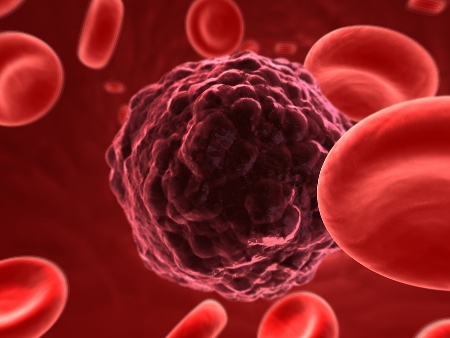Published in international journal Cell Reports the research conducted by scientists from the University of Sydney found 'bad' cholesterol (Low Density Lipoprotein, or LDL) regulates the machinery that controls cell migration, a major finding in the search to explain why cancer spreads throughout the body.
Paper senior author, Associate Professor Thomas Grewal from the University's Faculty of Pharmacy, said the research had important implications for cancer research.
"One of the things that makes cancer so difficult to treat is the fact that it can spread around the body," he said.
"Most of the cells in our bodies stick to neighbouring cells through the help of 'Velcro-like' molecules on their surface known as integrins.
"Unfortunately, integrins also help cancer cells that have broken away from a cancerous tumour to take root elsewhere in the body.
"Our study identified that 'bad' (LDL) cholesterol controls the trafficking of tiny vessels which also contain these integrins, and this has huge effects on the ability of cancer cells to move and spread throughout the body.
"Our research found that having high amounts of 'bad' cholesterol seem to help the integrins in cancer cells to move and spread.
"In contrast, we found that high levels of 'good' (HDL) cholesterol keeps integrins inside cells and may therefore protect against cancer cell spread."
Researchers have extensively examined how integrins can move to the inside of cells. Most interestingly, out of several novel therapeutic opportunities, cholesterol, one of the major lipids in our body, is needed to keep integrins on the cell surface of cancer cells.
However, up to now it was unclear where this cholesterol was coming from and how one could manipulate this to treat cancer.
"Our findings contribute to the debate that cholesterol levels may be associated with cancer incidence," Associate Professor Grewal said.
"In fact, malignant cancer cells are known to take up increased amounts of 'bad' LDL cholesterol.
"Our findings advance the theory that knowing how to manipulate and lower 'bad' cholesterol could significantly help to reduce the ability of cancer cells to spread."
Associate Professor Grewal has been collaborating with Professor Carlos Enrich from the University of Barcelona (Faculty of Medicine) in Spain for 15 years on the link between cancer and cholesterol.









-160x160-state_article-rel-cat.png)










